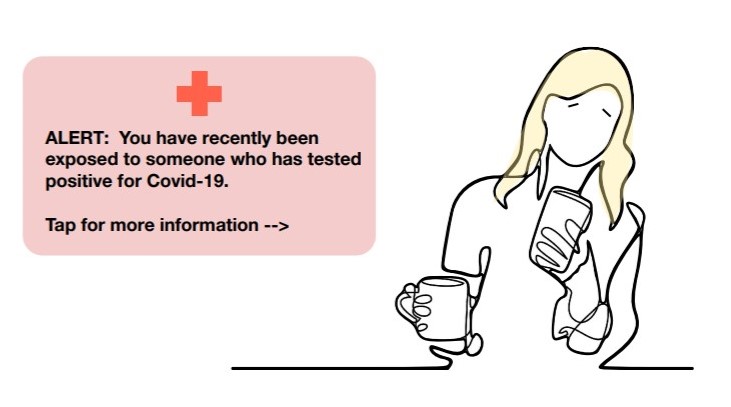Apple, Google Join Forces to Combat COVID-19
Apple and Google are forming a united front to leverage smartphones to track COVID-19 cases.
April 13, 2020

Apple and Google compete in a lot of ways, but some crises are big enough that differences can be set aside. On April 10, the tech giants jointly announced they are collaborating on an API and a platform that will work across both iOS and Android smartphones to help track COVID-19 exposures and warn people who may have been exposed to the novel coronavirus behind the disease.
“Contact tracing can help slow the spread of COVID-19 and can be done without compromising user privacy,” Apple CEO Tim Cook said in a tweet announcing the new development. “We’re working with @sundarpichai [and] @Google to help health officials harness Bluetooth technology in a way that also respects transparency [and] consent.”
The new API will be rolling out in May and will be followed by a broader Bluetooth-based contact tracing platform. The API will facilitate interoperability between various public health apps on iOS and Android. The Bluetooth tracing platform will be opt-in and will provide a more robust solution that allows people to be notified if they’ve been potentially exposed to COVID-19.
Both companies have made clear that they’re committed to preserving privacy in this effort. The tracing platform does not collect identifying user information or location data, it does not share your contacts with any external devices or servers, and it maintains the anonymity of those who test positive for the disease.
Google has provided graphics outlining how the Bluetooth platform will work:
|
|
(Image source: Google, Apple) |
The platform will ping the phone of anyone you’ve physically interacted with using an anonymous beacon (both of you must opt in first). Anyone that tests positive for COVID-19 can opt to enter their test results into an app provided by a public health authority. Once this is done the platform will search for the beacons of anyone you’ve come into close contact with (up to 14 days) and anonymously notify them that they have been exposed to someone who has tested positive for COVID-19 as well as instructions on how to take appropriate action.
Claims that the platform protects user privacy have been met with skepticism however. "No contact tracing app can be fully effective until there is widespread, free, and quick testing and equitable access to healthcare. These systems also can’t be effective if people don’t trust them." Jennifer Granick, ACLU surveillance and cybersecurity counsel told Design News via email. "People will only trust these systems if they protect privacy, remain voluntary, and store data on an individual's device, not a centralized repository. At the same time, we must be realistic that such contact tracing methods are likely to exclude many vulnerable members of society who lack access to technology and are already being disproportionately impacted by the pandemic."
Granick statement speaks to already growing data that African American communities in particular have been hit hardest by the coronoavirus. News of this has put a spotlight on the disparities in healthcare in the African American and other minority communities -- disparities that exist in part because of a lack of access to technology.
"To their credit, Apple and Google have announced an approach that appears to mitigate the worst privacy and centralization risks, but there is still room for improvement. We will remain vigilant moving forward to make sure any contract tracing app remains voluntary and decentralized, and used only for public health purposes and only for the duration of this pandemic," Granick said.
Google and Apple have both been working on separate efforts around COVID-19 as well. Google, for example, has committed to taking measures to block misinformation in searches related to the disease. DeepMind, Google’s AI subsidiary, has also been researching using artificial intelligence to make structure predictions associated with SARS-CoV-2, the coronavirus that causes COVID-19. DeepMind hopes these structure predictions can help researchers better understand how the virus behaves.
Apple has recently released a COVID-19 screening app and website that allows users to check symptoms via a questionnaire and get information on prevention and treatment. The app was developed in collaboration with the CDC, the White House Coronavirus Task Force, and FEMA.
In a statement about the COVID-19 contact tracing platform, both Google and Apple said there has never been a more important time for companies like them to work together. “Through close cooperation and collaboration with developers, governments, and public health providers, we hope to harness the power of technology to help countries around the world slow the spread of COVID-19 and accelerate the return of everyday life.”
RELATED ARTICLES:
Chris Wiltz is a Senior Editor at Design News covering emerging technologies including AI, VR/AR, blockchain, and robotics.
About the Author(s)
You May Also Like



.jpg?width=300&auto=webp&quality=80&disable=upscale)

